
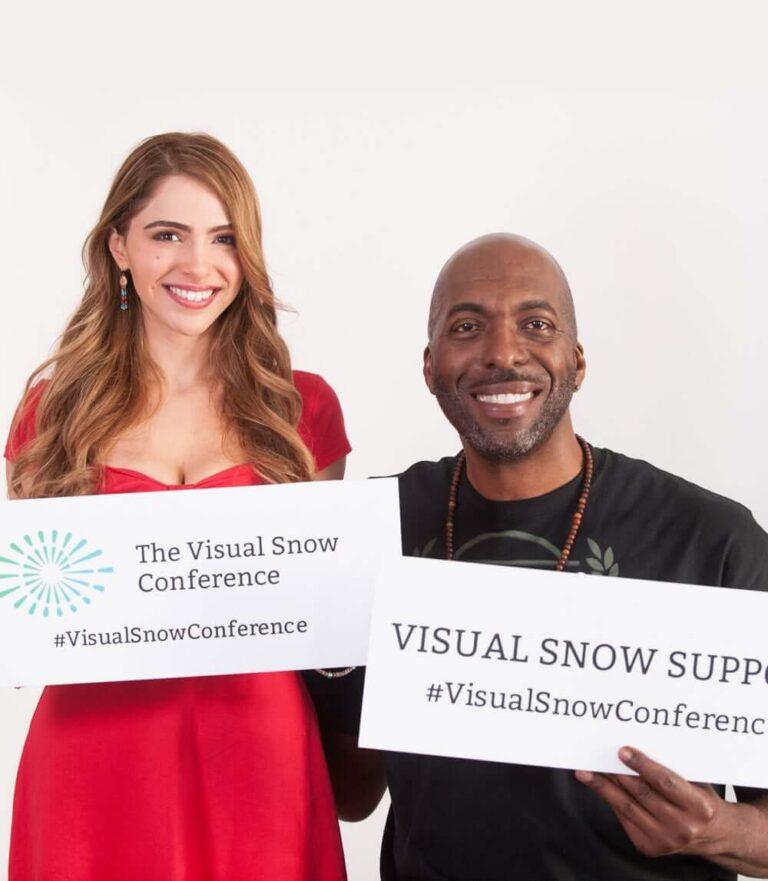



Support Visual Snow Syndrome Research
All donations to the Visual Snow Initiative go directly to Visual Snow Syndrome (VSS) research.
Your tax-deductible contribution ensures that global research will continue and makes a positive difference in the lives of people affected by VSS.
Details regarding the types of studies we are funding can be found in the section below, as well as on our Donate and News & Research pages.
In the additional sections below, we also share other ways that you can get involved and help support our efforts to generate further awareness, education, resources, patient advocacy, treatment development, and research for VSS.
Thank you so much!
VSI's Visual Snow Syndrome Research
At the Visual Snow Initiative (VSI), we work with scientists, doctors, and researchers to better understand Visual Snow Syndrome (VSS) and find ways to treat it.
Our goal is to support studies that explore what causes VSS, how it affects people, and what can be done to help.
Explore our Research below:
Volunteer with VSI, Participate in Studies
Become a Volunteer
If you are interested in volunteering for the Visual Snow Initiative and helping our cause, thank you!
We greatly appreciate your support, and would love to have you join our team’s efforts to make the world a better place for individuals affected by Visual Snow Syndrome.
Take Part in Research
For more information on clinical trials involving Visual Snow Syndrome (VSS) and/or Visual Snow (VS), please visit ClinicalTrials.gov or ICH GCP.
In addition to the databases above, we share study participation opportunities and information on VSI-funded/supported research via our website (in the News & Research section), newsletter, and social media channels.
You can also reach out to VSS researchers if you would like to share information about your case that may be helpful to them. Many VSS researchers and medical professionals can be found in our global Physicians & Specialists Directory.
For VSI-funded or supported studies, participation opportunities will be announced through VSI and any affiliated institutions or universities. For other studies, researchers will typically share opportunities via their own websites and/or social media channels.
(Please note: The Visual Snow Initiative does not manage the enrollment or communication processes for studies. All study-related inquiries should be directed to the research team responsible for the specific study. Please see our FAQ page for more details.)
Share Your Story, Spread the Word
Sharing your story and spreading the word can help generate valuable awareness, education, and interest in Visual Snow Syndrome (VSS). Importantly, it is an opportunity to help, inspire, and relate to others with VSS who may be struggling or feeling alone. Health professionals also benefit from hearing about your symptoms and experiences. This contributes to their understanding of the condition, which advances VSS research and improves patient care.
Methods:
- Raise awareness for VSS and VSI's cause within your local community by speaking to family, friends, and local medical professionals.
- Consider educating others by distributing and sharing our VSS Brochure, as well the official VSS Diagnostic Criteria (both resources are accessible on our website).
- Advocate for increased funding and support for VSS research and policies related to the condition.
- You can also raise awareness for VSS online in a variety of ways, including social media, which is an excellent tool for connecting with people around the world.
- Create and share your own VSS-related content, such as personal stories, videos, artwork/photography, or other projects.
- Supporting VSI on social media ensures that we can continue our advocacy work and keep creating a variety of new VSS content.
- Following and tagging VSI, as well as reposting/sharing our posts helps spread the word. Thank you.
- For an opportunity to be featured on VSI’s website and social media, become our next Warrior of the Week or Creative Mind.
For Medical Professionals and Researchers
The support and collaboration of the medical, scientific, and academic communities are essential to driving global progress in understanding and treating Visual Snow Syndrome (VSS). Your expertise and involvement have the potential to make a profound and lasting difference for those affected by this condition.
For doctors and medical professionals:
If you are a doctor or qualified medical professional currently seeing/treating patients with Visual Snow Syndrome, we encourage you to join our Global VSS Physicians Directory. This directory connects patients with a global network of healthcare professionals who are knowledgeable about VSS. Your participation ensures that VSS patients can find doctors who understand their unique needs, helping them access informed care and navigate their condition more effectively.
Developed by VSI in collaboration with physicians and researchers, our VSS Diagnostic Criteria, VSS Brochure(available in multiple languages), VSS Patient Guide (for patients), and the additional resources on our website, are helpful tools that can be utilized within healthcare facilities, offices, and practices.
For researchers, professors, and students:
If you are a researcher, professor, or student conducting academic or scientific studies on Visual Snow Syndrome, we welcome your involvement. The Visual Snow Initiative (VSI) can assist your efforts through study recruitment, collaborative support, and amplifying your research to ensure it reaches a wider audience. Together, we can expand the knowledge base and bring greater awareness to this condition.
Thank you for your commitment to making a positive impact by facilitating awareness, education, research, and patient care. Your participation is essential in shaping a future where VSS is better recognized, understood, and properly treated.
If interested, please can contact us below.
Fundraising Events
Fundraising by participating in or hosting events can be a rewarding and impactful way to make a positive difference.
Contact Us
If you are interested in fundraising for Visual Snow Syndrome (VSS) research/the Visual Snow Initiative by organizing or participating in an event, thank you!
We kindly ask that you contact our team at info@visualsnowinitiative.org regarding your efforts.
Together, we can discuss collaboration ideas and how our team can best support your event or campaign related to VSS.
Sharing Your Inspiring Efforts
With your permission, our team may announce and honor your inspiring fundraising efforts via our website, newsletter, and/or social media channels.
Methods:
- Collaborate with VSI by organizing educational workshops, seminars, or courses to generate awareness and education for VSS.
- You can participate in fundraising events such as charity walks, runs, marathons, or cycling events.
- Fundraising event ideas also include community gatherings, charity dinners, auctions, raffles, bake sales, or creative (art and music) exhibitions.
- Consider encouraging friends, family, and others to sponsor or join you.
- Engage local businesses and community members to support and participate.
- Notify us of your efforts, so we can support your event or campaign and highlight your achievements.
Shop to Support the Cause
Visual Snow Syndrome-themed/Visual Snow Initiative shirts, hoodies, and more are available in our online shop. They are offered in multiple styles, colors, and sizes (XS-4XL).
100% of the net proceeds go directly to Visual Snow Syndrome research.
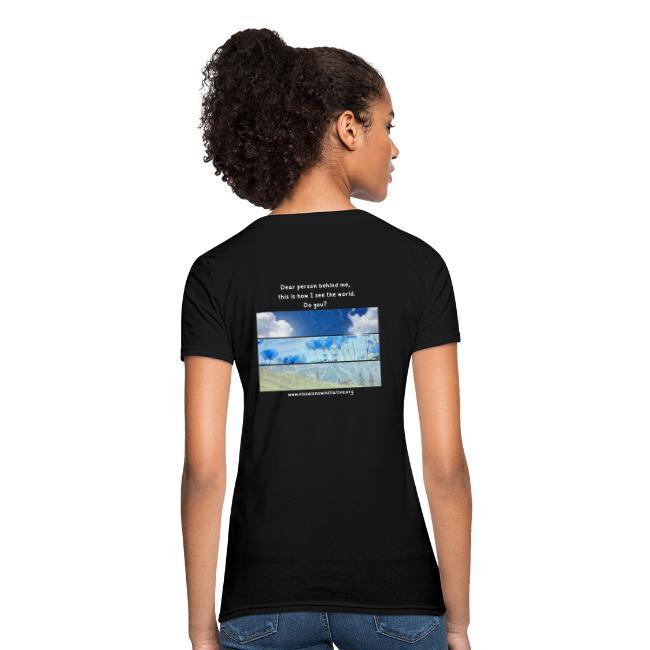
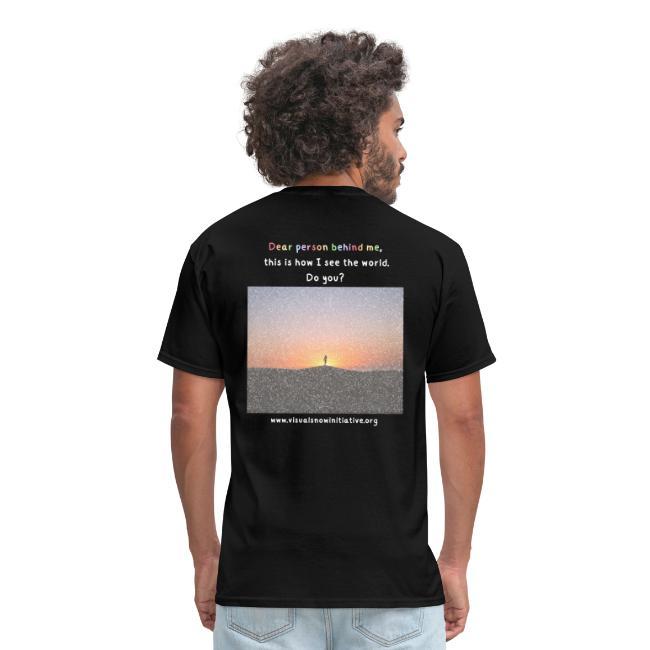



The Visual Snow (VS) Worldwide Project
This project features images of people and places from around the world. The aim is to demonstrate the diverse, global impact of Visual Snow Syndrome (VSS) and its primary symptoms, such as Visual Snow (VS), palinopsia, and more. The VS Worldwide Project illustrates the significant contrast between life for those with symptoms of this condition versus those without. Together, by sharing these images, we can increase awareness for VSS and create a world where affected individuals are better understood and supported.
If you would like us to feature a specific location or visual symptom of VSS, please contact us.
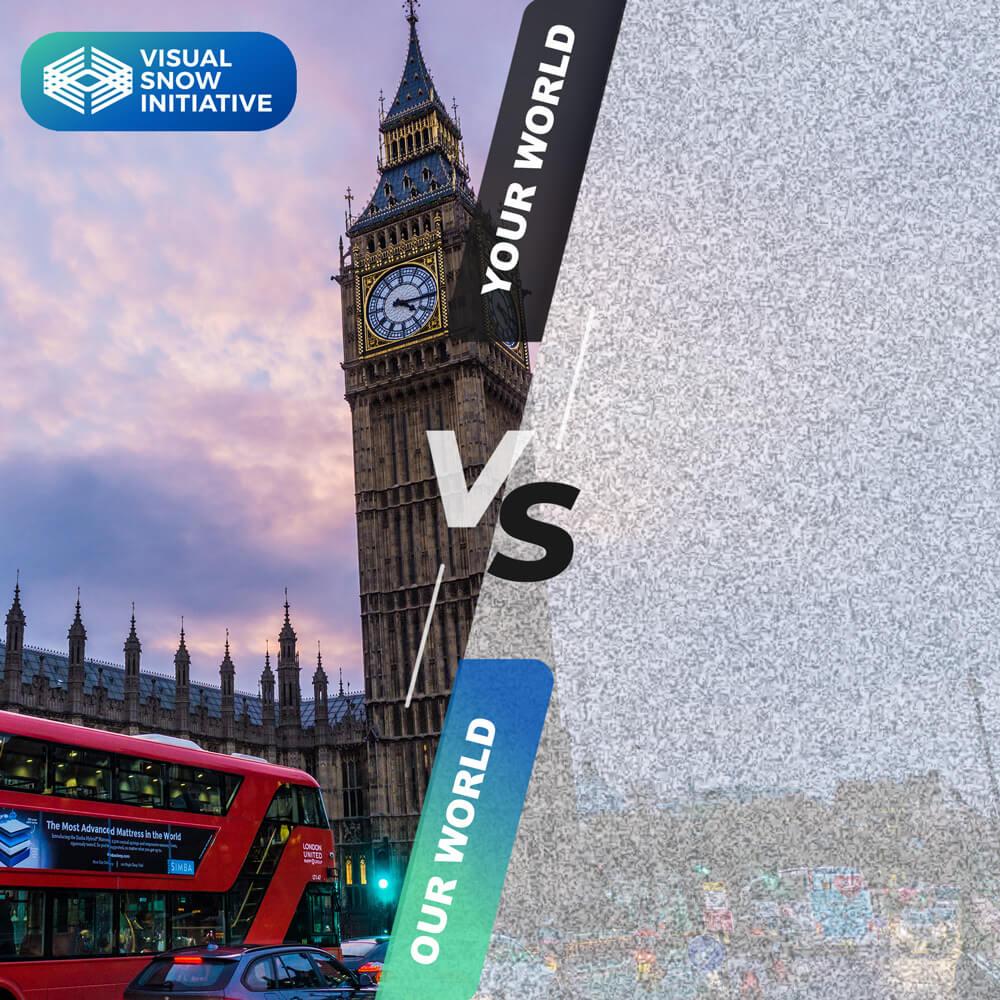
VSI 4 Kids
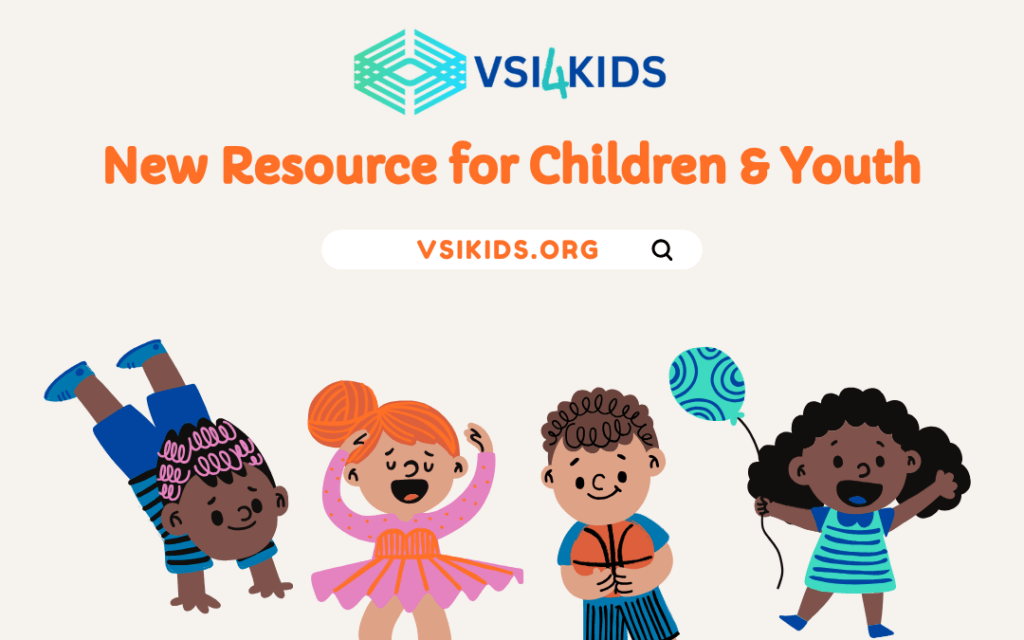
Support Visual Snow Syndrome Research
All donations to the Visual Snow Initiative go directly to Visual Snow Syndrome (VSS) research.
Your tax-deductible contribution ensures that global research will continue and makes a positive difference in the lives of people affected by VSS.

